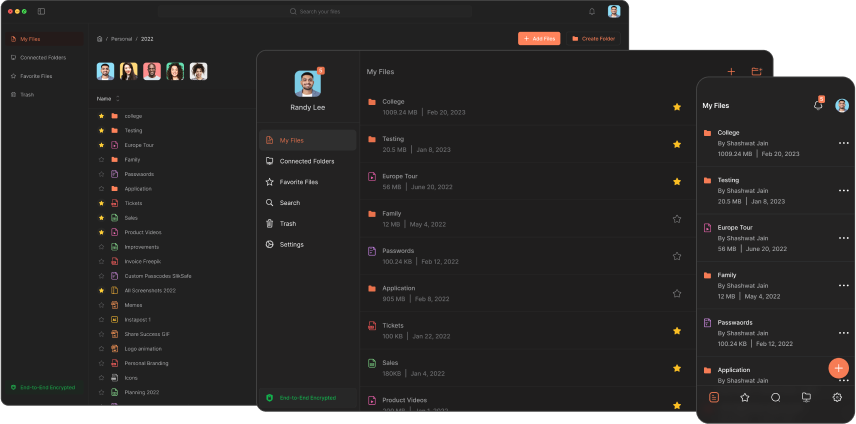Compressing JPEG Files: A Necessity in Today's Web-First World
In today's digital age, where the internet is an integral part of our daily lives, the importance of efficient data management cannot be overstated. One of the most common types of data we encounter on the web is images, and among the various image formats, JPEG stands out due to its widespread use. Compressing JPEG files is a crucial practice that offers numerous benefits, especially in a web-first world where everyone is connected. This blog delves into the significance of JPEG compression and its impact on web performance, user experience, and overall data management.
Understanding JPEG Compression
JPEG, which stands for Joint Photographic Experts Group, is a popular image format known for its ability to compress images with minimal loss of quality. The compression process involves reducing the file size of an image by eliminating redundant or less important data. This is achieved through a combination of techniques such as discrete cosine transform (DCT), quantization, and entropy coding. The result is a smaller file size that retains a high level of visual fidelity, making JPEG an ideal format for web use.
The Importance of JPEG Compression
-
Faster Loading Times
One of the primary reasons for compressing JPEG files is to improve website loading times. In a world where users expect instant access to information, slow-loading websites can lead to high bounce rates and lost opportunities. Compressed JPEG images load faster, ensuring that web pages are displayed quickly and efficiently. This is particularly important for mobile users who may have limited bandwidth and slower internet connections.
-
Enhanced User Experience
User experience is a critical factor in the success of any website. Visitors are more likely to stay on a site that loads quickly and provides a seamless browsing experience. By compressing JPEG files, web developers can ensure that images do not hinder the overall performance of the site. This leads to a more enjoyable experience for users, encouraging them to explore more content and engage with the website.
-
Reduced Bandwidth Usage
Bandwidth is a valuable resource, especially for websites with high traffic volumes. Compressed JPEG files consume less bandwidth, allowing more users to access the site simultaneously without compromising performance. This is particularly beneficial for websites that host a large number of images, such as e-commerce platforms, news sites, and social media networks.
-
Improved SEO Performance
Search engine optimization (SEO) is essential for driving organic traffic to a website. Search engines like Google consider page loading speed as a ranking factor. By compressing JPEG images, websites can achieve faster loading times, which can positively impact their search engine rankings. Higher rankings lead to increased visibility and more potential visitors.
-
Cost Savings
For businesses and individuals who rely on web hosting services, data storage and bandwidth costs can add up quickly. Compressed JPEG files take up less storage space and require less bandwidth, resulting in cost savings. This is especially important for websites with limited budgets or those looking to optimize their resources.
Best Practices for JPEG Compression
To maximize the benefits of JPEG compression, it is important to follow best practices:
-
Choose the Right Compression Level
JPEG compression allows for adjustable quality settings. It is important to find the right balance between file size and image quality. A higher compression level will result in a smaller file size but may reduce image quality. Conversely, a lower compression level will maintain higher quality but result in a larger file size. Experiment with different settings to find the optimal balance for your needs.
-
Use Compression Tools
There are numerous tools available for compressing JPEG files, both online and offline. Tools like Adobe Photoshop, TinyPNG, and ImageOptim offer advanced compression options that can significantly reduce file sizes without compromising quality. These tools often provide batch processing capabilities, allowing you to compress multiple images at once.
-
Optimize Image Dimensions
In addition to compressing JPEG files, it is important to ensure that images are not larger than necessary. Resize images to the appropriate dimensions for their intended use on the web. This reduces the file size further and ensures that images are displayed correctly on different devices.
-
Leverage Modern Image Formats
While JPEG is a widely used format, modern image formats like WebP offer even better compression and quality. Consider using WebP for web images where supported, as it can provide superior performance compared to JPEG.
Conclusion
In a web-first world where everyone is connected, the importance of compressing JPEG files cannot be overstated. Faster loading times, enhanced user experience, reduced bandwidth usage, improved SEO performance, and cost savings are just a few of the benefits that come with efficient JPEG compression. By following best practices and leveraging the right tools, web developers and content creators can ensure that their websites are optimized for the best possible performance. Embrace JPEG compression today and take a step towards a faster, more efficient web experience.
Other free tools by Slik Safe
Download Now
The Slikest Files Experience Ever Made
